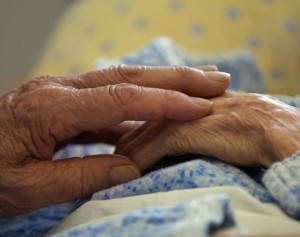Funerals for Children
Grief and Loss
Funerals For Children
Losing a child is never easy even when the child is not your own. Children are the hope for the future and should have so much of their life ahead of them. When a child is lost so are the dreams and the hopes of the future. It seems unnatural to be taking care of any end of life arrangements of a child. Because of this, many funeral homes don’t display caskets, burial vaults, or items related to child loss. There is for many a sense of loss of innocence when a child dies. Expectations are cut short, and the deep, unexpected grief and loss of the parents of the child is an additional factor that makes taking care of the child and the family difficult.
Here are some things you might do to take care of yourself while helping a family who has lost a child:
Be Prepared: Mentally prepare yourself that eventually it will be your task to help a family who has lost a child. We tend to push things out of our minds that are extremely unpleasant. Spend some time thinking about what you need to help yourself during this time. It is easier to plan ahead when you are not emotionally involved at the moment.
Be Aware Of Triggers: If you have children be aware that a loss of a child around the age of your children might affect you more. For some it is easy to think that the deceased child could be my child lying on the table. Remind yourself that your child(ren) are healthy and alive. Stop yourself from thinking in terms of the “What If’s”, and realize that your being so affected can help others feel your compassion.
Delve Into Your Spirituality: Even though you work with death every day are you comfortable with what happens to the spirit after a person dies? Do you have a strong faith system? Does it encompass the loss of a child? The more you are secure in your belief system the less rattled you might be at the time of a death of a child. Your stability will be an asset the family of the child can draw upon during the funeral service.
Have Resources Available: The loss of a child tends to bring out the community in force. Make sure to have avenues for people to express their grief. They will rely on you less if they have other places of support. Some items to keep on hand would be:
- Online Journal with a guestbook. People can write in the guestbook at your funeral home, from home or school. It is accessible 24/7.
- Grief Therapists and others who can help people through the grieving process can be written out and can be placed on tables or given out at the service.
- Virtual Candles can be put on your website for families to light at the wake, service or at a later date.
Finally, remember to stick to the basics. Remember to eat complete meals three times a day. Put away the sugar and the chips. Drink lots of water and skip the caffeine and alcohol. Rest as much as you possibly can. Fatigue exacerbates difficult situations so when you can take a quick nap. If a child’s death is still affecting you after a month or two consider talking to a your doctor or seek grief counseling. Even those in the funeral profession need and can consult outside professionals to help them through emotionally trying times.
© 2010 Kelasan, Inc.







